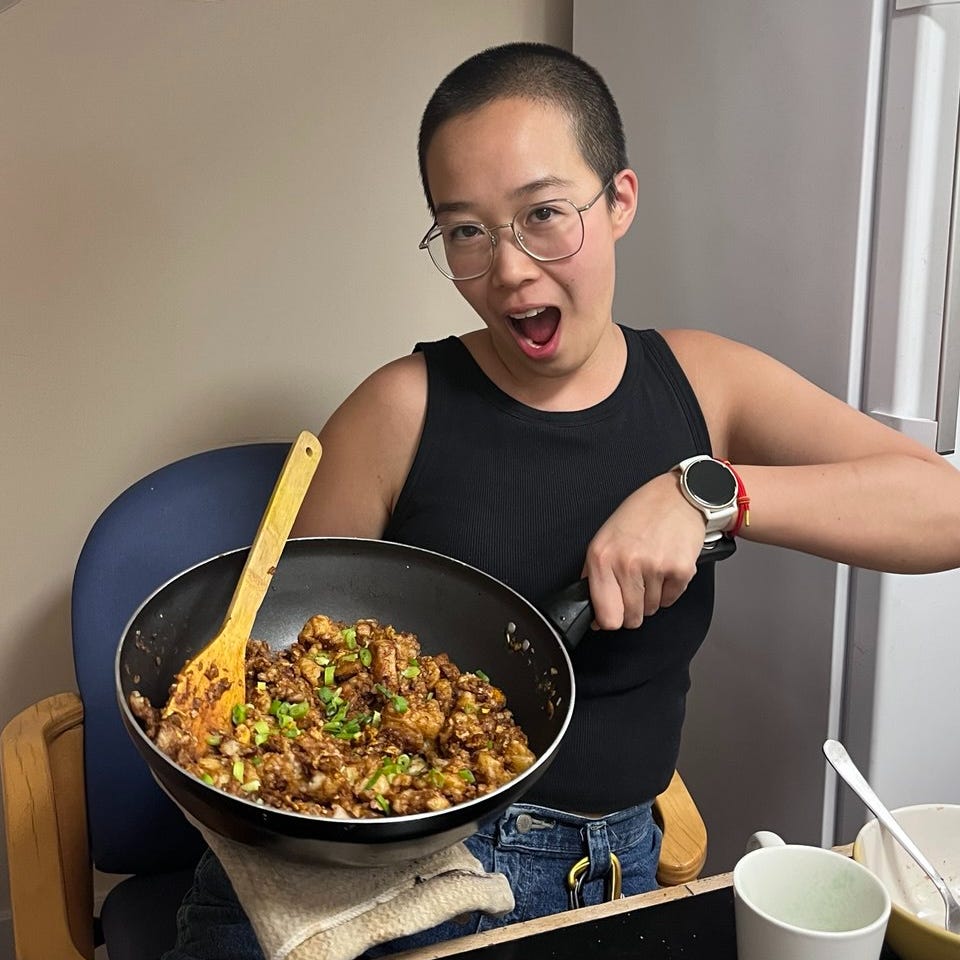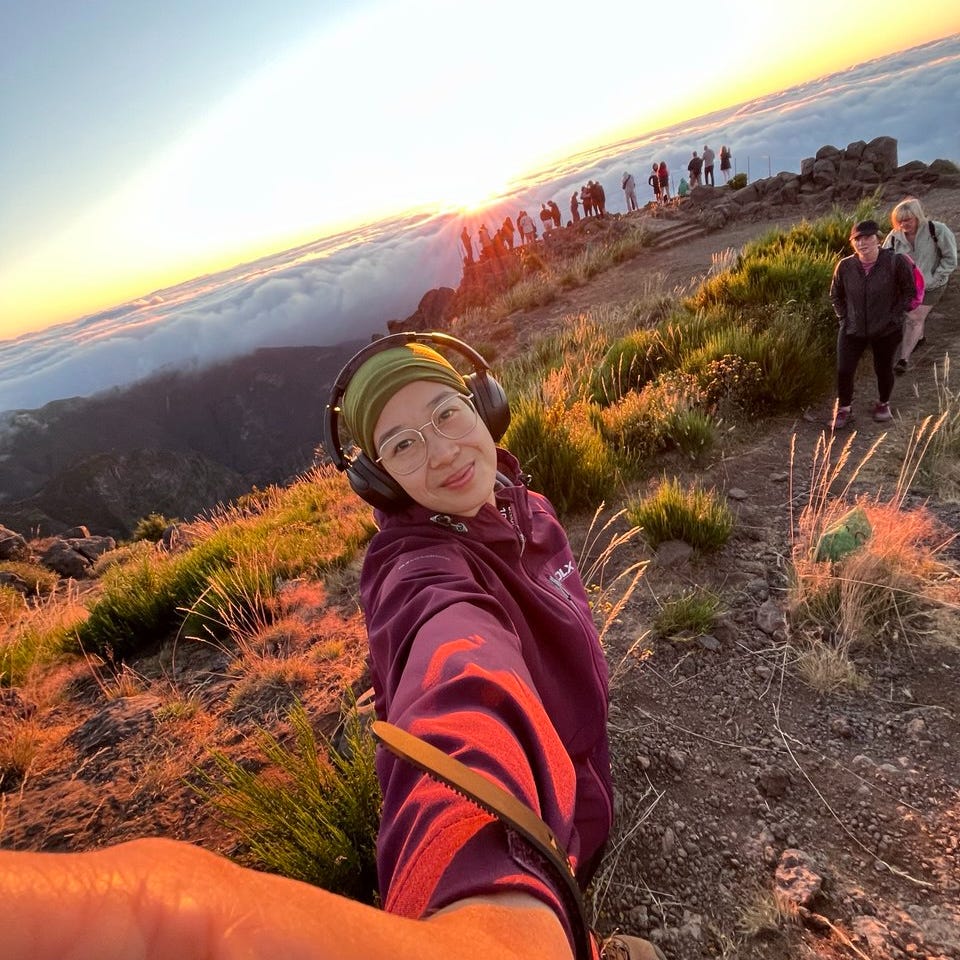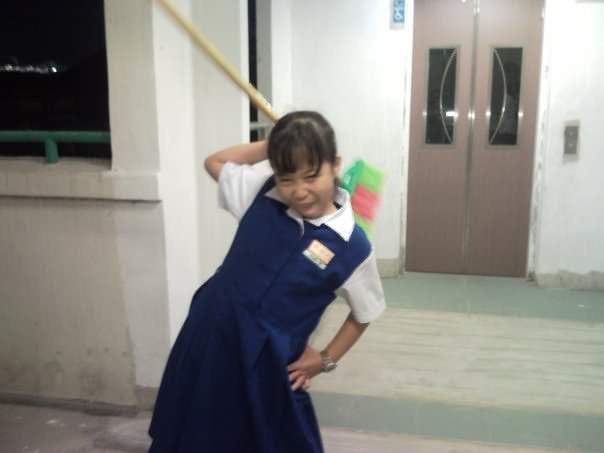Before I formally launch Data Rakyat on National Day, I want to thank all of my early subscribers (you!) It’s been great fun getting to explore the medium of writing and working on data-driven advocacy. As a little thank you, here’s a more personal piece, sharing more about myself and my vision for Data Rakyat.
So… who are you?
Hey there! I am Jo, just turned 24 (hence the 24 questions) and currently living in Oxford, UK. I’m a theoretical physicist by training, but I also enjoy dabbling in science communication and data storytelling.
Any relation to the MP?
Nope! We just share the same name. I do happen to live in Jalan Besar GRC though. The running joke online is that I’m “Jo Teo (not the MP, yet).”
What is your background?
I just completed my Masters in Mathematical and Theoretical Physics at the University of Oxford, and am about to embark on a PhD in Physics next. My research interests are in Cold Atom Physics and Quantum Information. I, quite unsurprisingly, love working with numbers and looking for patterns even in everyday life.
I also have ambitions of being a professor one day, so I have been working on honing my communication skills through tutoring and science outreach work. These skills have transferred surprisingly effectively to what I do now. Turns out, data storytelling and science communication are just two sides of the same coin. It’s all about translating intimidating ideas into something digestible to a general audience.
What exactly does cold atom physics mean?
Well, when atoms get really cold, they start behaving… weirdly. Quantum-y. They act more like waves than particles, and those waves can overlap, interfere, teleport, and do all kinds of funky quantum things. Once we get to really low temperatures, we’ve opened the doors to a whole new realm of physics!
Why is a physicist doing data storytelling?
Because data isn’t just for science labs. I am a firm believer that political literacy and engagement is for everyone, regardless of their background. Political apathy just because you are in an ‘unrelated’ field is fundamentally missing the point that politics affects every member of society, whether you want it to or not.
In fact, I think my background puts me in an ideal place to bridge the gap between jargon-filled academic writing and emotionally-driven ‘pop’ politics. I want to strike a balance between rigour and accessibility.
Were you always this opinionated, or did something spark it along the way?
My mum would say yes. I was the kind of kid with incessant questions about everything around me. I must’ve been a difficult child to raise. But questioning everything is what led me here – and now, instead of annoying my family, I can channel that curiosity into actual research.
What are a few things that make you tick?
Honestly? I hate being condescended to. You know that childhood frustration when adults dismiss you with, “You’ll understand when you’re older”? That’s exactly how I feel when institutions or authorities insinuate that I’m too naive to understand the bigger picture. Challenge accepted. How hard can it be?
Anyways, that’s the TLDR of how a random first-time voter became a respected figure in the gerrymandering debate in Singapore, alongside full-time politicians and political scientists.
I’m pushing back against large players hiding behind numbers, jargon, and opaque processes, and showing that all of us belong in the conversation. Let’s democratise politics.
What’s something most people don’t know about you?
I worked as a dive guide from ages 17 to 20! I miss it a lot, and would kill to be able to scuba dive regularly again. My 6 month research stint in Okinawa was such a dream, and that’s where I finally managed to dive with my first manta ray!
What made you want to start writing publicly, and why now?
During GE2025, I made some TikTok videos that took off more than expected. People seemed to resonate with my data-driven takes. But I found myself frustrated by the lack of rigorous sources during my research process. So I decided.. If it doesn’t exist, I’ll build it.
What do you expect this space to be?
Data Rakyat is a project by the people, for the people. This is a place where Singaporeans of all backgrounds are empowered to engage with data. We hope to collaborate with writers who can contribute their expertise and insight on issues that affect the everyday Singaporean. Even if you feel out of depth with our more rigorous analyses, we would still love for readers to participate at a more casual level through our citizen science projects. Everyone is welcome to get involved, and see first-hand how data can serve us even in the most unexpected ways.
What kinds of topics can readers expect to see here?
Everything Singaporean. From gerrymandering and education policy to hawker trends and MRT gripes. If it affects the daily lives of the rakyat, it’s fair game.
Is this going to be very political? Should we be worried?
Data Rakyat is a non-partisan publication! We focus on the rakyat – the people – not the parties. There’s so many issues that affect us all, regardless of our beliefs and leanings. This means we’ll critique systems and policies when necessary, but always with the aim of improving lives, not tearing anyone down. Everyone’s welcome here.
Your articles tend to be so critical. Do you hate Singapore?
Not at all. I love her. I wouldn’t spend this much time researching and writing about her if I didn’t. I’m grateful for the person she’s shaped me to be, and in return, I want to shape Singapore into the best she can be.
Who are you hoping will read this?
I hope that the everyday Singaporean will read this. Most of us have received some quantitative and statistical education, whether in JC, Poly, or Uni. But our skills might be rusty, or we’re not used to seeing it outside of the classroom context. I want to challenge readers to apply these skills to everyday Singaporean issues, so that you can understand and form informed opinions about the policies that affect you most. Don’t let the technical language intimidate you into thinking that you don’t deserve even an opinion while the “experts just know best”.
And who do you secretly hope reads it too?
If policymakers read my work too, I would be thrilled. I sincerely hope that these pieces spark good-faith conversations across the political spectrum. We don’t have to agree on everything; as long as we keep the rakyat at the forefront of the discourse, we’re making progress.
How do you decide what to write about?
Right now, in the early days of Data Rakyat, I’m writing more reactively and responding to current issues that matter to the people. A large part of serving the people involves listening to the people. That’s the current priority, and writing strategy.
Over time, I hope to shift to more proactive pieces and longer-term investigations. I am also encouraging guest writers to bring their own passions and expertise to the table, which I am very excited about.
Are you still going to be doing tiktoks?
Yes! The whole point of getting into writing is to give me rigorously-researched and presented sources to cite in my short-form videos. Since research and writing takes a substantial amount of time (if I want the job to be done well), I’ll probably be posting fewer, but higher-quality, short form videos in the near future.
What’s your process like - messy drafts, midnight edits, or sudden inspiration?
Sudden inspiration, then brain-dump style writing to get all my thoughts out, often in one sitting. I somehow do this best when on flights, or in airports. Then editing for cohesiveness, flow and clarity. Iterating from there until I get an article I’m happy with.
What happens when people disagree with what you write?
So far, no one’s managed a proper rebuttal – just a lot of personal insults. I see that as a sign of quality. If people want to argue with me, they’ll have to come prepared. Hopefully that raises the overall quality of the discourse, then we can all benefit!
Is there a line you try not to cross when it comes to public critique?
I try not to make things personal. The target is always the system, not the individual. Criticism should aim to improve things, not tear people down.
What are some things you’re really nerdy about?
As you might expect… physics. Also, marine life, musical theatre, and any water-based sport. I’ve swum, scuba’d, sailed, rowed, dragon boated. Am I secretly a fish?
What’s your comfort food?
I cook a killer chicken rice. I go the extra mile to fry the chicken skin until it’s crispy and use it as a topping. Game changer. Also, a kopi c tilo.

What book(s) are you reading right now?
Too many things at once. It’s a personal flaw.
MRT read: The Maverick Pig by Wang Xiaobo. Witty.
Bedside read: A Day In The Life of Ivan Denisovich by Aleksandr Solzhenitsyn. Devastating.
Audiobook: Why We Get Sick by Benjamin Bikman. Meh.
Don’t even get me started on my To Be Read list. That’s gonna be another full article.
What’s a book, song, or movie that always inspires you to keep going?
3 Idiots is my ultimate comfort film as a scientist. It reminds me of why I fell in love with physics, and snaps me out of my anxiety around grades, deadlines and classes. Once you remember what you love about your field, it’s much easier to enjoy the process, or keep going when times get tough. It’s a beautiful tribute to learning, questioning, and staying curious – all things I try to live by. It also has such perfect comedic writing and timing.








omg gurlllllllll i' so glad you've started a substack. I Look forward to all of your content <3 <3 Much loves
Love reading your posts - They are refreshing. Where do you normally get your reading recommendations from?